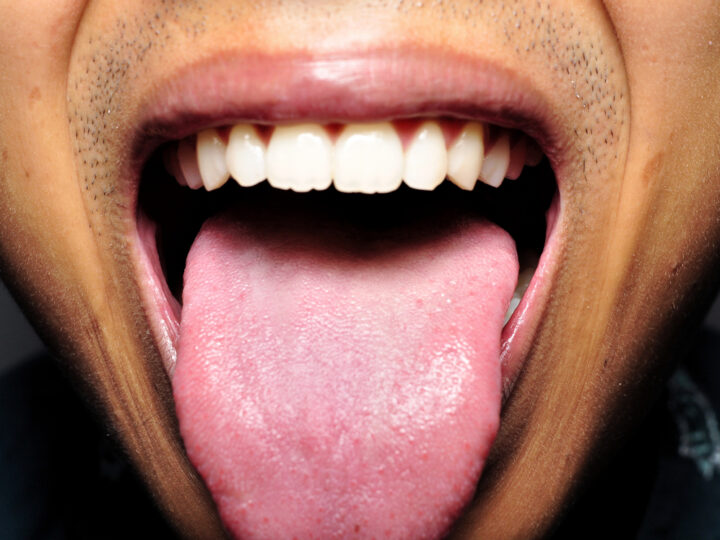ORAL HEALTH 101
The Eastern Medicine Take

Let’s face it, nobody likes going to the dentist, but your oral health is important! What’s worse is when you’re slapped with a huge bill after a painful procedure. Not only is good oral health important for your mouth, but it can be an indicator of your overall health and well being.
According to the CDC, 40% of adults have reported pain in their mouth in the last year. If you’re experiencing oral health problems, Eastern Medicine can help. Let’s take a closer look at how Eastern medicine views oral health and tips to keep those chompers in good shape.
How Does Eastern Medicine View Oral Health?
To start, oral health is important in both Western and Eastern medicine. Oral health not only refers to your teeth, but the gums and entire system that allow you to smile, speak and chew. So when we’re talking about oral health, we mean your teeth, gums, tongue, and everything else in there.
 The beliefs that your teeth as well as your tongue are connected to your organs through meridians. For example, an Eastern medicine practitioner may look at your tongue to find the answer to an ailment. If your tongue is pale, it could indicate a deficiency in the body.
The beliefs that your teeth as well as your tongue are connected to your organs through meridians. For example, an Eastern medicine practitioner may look at your tongue to find the answer to an ailment. If your tongue is pale, it could indicate a deficiency in the body.
Another way Eastern medicine looks at oral health is through the Meridian Tooth Chart. This chart is based on the acupuncture meridians, and connects certain teeth to different organs in the body.
When you’re looking at the chart, it’s important to understand that it goes both ways. If your tooth is hurting, it could mean there’s a problem in an organ. Or, if your organ is having issues, it could result in pain in that specific tooth.
While your teeth influence other organs, the teeth are managed by the kidney Qi. “The teeth are the “surplus of the bone” in TCM. Teeth and bones are both dependent on strong kidney Qi. As in all areas of Eastern medicine, it’s important to keep the entire body balanced. Practicing Eastern medicine for oral health can help you improve:
- Halitosis (bad breath)
- Gingivitis
- Canker Sores
- Cold Sores
- Tooth Pain and Sensitivity
Eastern medicine views your body as every piece working together to maintain balance. Another part of your body that can influence oral health is your gut. When your gut is imbalanced, it can cause oral health problems and vice versa
The Connection Between Oral Health and Gut Health
 If you’ve been practicing Eastern medicine, you’re probably familiar with gut health. It all comes down to the bacteria in the body. The mouth and your stomach are connected, so bacteria can travel between the two.
If you’ve been practicing Eastern medicine, you’re probably familiar with gut health. It all comes down to the bacteria in the body. The mouth and your stomach are connected, so bacteria can travel between the two.
So, if your gut is overloaded with bad bacteria, it can travel to your mouth and wreak havoc. For example, if you have a lot of cavities, it could be due to an imbalance in your gut flora. The passing of bacteria can also turn into inflammation in other parts of the body.
Research has found that people with IBS often have higher levels of oral bacteria in the digestive tract. So, bacteria in the wrong place can cause problems. This is why it’s so important to maintain a healthy gut and a healthy mouth. That’s where Eastern medicine comes in!
How to Use Eastern Medicine to Improve Your Oral Health
The good news is that there are several remedies from the world of Eastern medicine to solve your oral health woes. Chinese herbs as well as acupuncture can be used to relieve halitosis and gingivitis. Even if your oral health is in good standing, it doesn’t hurt to keep these remedies in your back pocket to maintain a healthy mouth!
Best Herbs for Oral Health
There are several herbs that can be used to tackle oral health issues. You can take these herbs as supplements, or make your own mouthwash depending on what you’re trying to improve. For example, if you have bad breath from halitosis, an herbal mouthwash could be a quick fix while you work on the underlying problem.
Honeysuckle Flower (Jin Yin Hua)
 Japanese honeysuckle has long been used in Eastern medicine remedies. Different parts of the plant are used for different conditions. When it comes to oral health, the flower of the plant can be used to help with tooth sensitivity.
Japanese honeysuckle has long been used in Eastern medicine remedies. Different parts of the plant are used for different conditions. When it comes to oral health, the flower of the plant can be used to help with tooth sensitivity.
So, if you experience pain when you eat really hot or cold foods, honeysuckle tea may help. Always consult with your doctor if the pain is extreme before trying herbal remedies.
Myrrh
When it comes to oral health, we want to be killing bad bacteria. Myrrh is known for its antibacterial properties, so it’s a great addition to an oral health herb kit. If you’re dealing with gingivitis (gum disease) this herb can also increase blood flow to soft tissues in the mouth.
If you’re dealing with a toothache, Myrrh can also help with pain relief. All around, Myrrh is an excellent Eastern medicine herb for your oral health.
Lian Qiao
Lian Qiao comes from the fruit of the Forsythia Suspensa Vahl family. This herb can also help with tooth sensitivity.
Dahuang Danbi
If you’re dealing with halitosis, you know that it can be difficult to get rid of. Before you get too close to anyone, try Dahuang Danpi Decoction. Research shows that this Eastern herb formula can help balance bacteria in the gut, specifically growth and metabolism of Lactobacillus bulgaricus, which will help you deal with bad bacteria in the mouth
Acupressure/Acupuncture
Don’t worry, we’re not talking about sticking needles in your mouth. In fact, data shows that acupuncture has been used to relieve oral pain scientifically since the 1970s. Remember how we mentioned the meridian chart for teeth? The same meridians can be used in acupuncture to relieve pain. Acupressure points used in dentistry may relieve:
- Temporomandibular joint (TMJ) pain
- Tooth pain
- Headaches
- Chronic oral pain
- Anxiety during Dental treatments
- Dry Mouth
Final Thoughts
The bottom line is that Eastern medicine is a great option for improving oral health. Whether you’re dealing with bad breath, or a toothache, there are remedies. If you are dealing with a serious oral health issue, always consult with your physician before trying to treat it at home.
Newer
Signs Your Body and Mind Need A Break
Older
Topical TCM: What are the Benefits, and How Do I Make My Own?
Comments (0)
Leave a reply
You must be logged in to post a comment.




